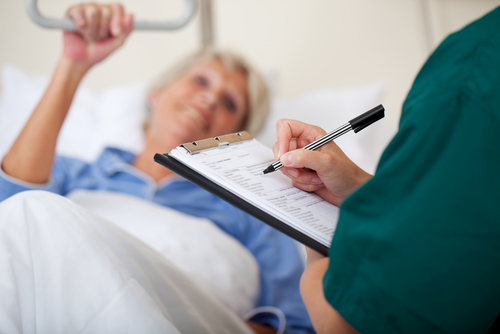Sleep Hygiene for Porphyria Patients

People with porphyria often have trouble sleeping. Because a good night’s sleep is vital to physical and mental health, as well as your quality of life, you may benefit from practicing sleep hygiene.
What is porphyria?
Porphyria refers to a group of disorders in which porphyrins — molecules normally used to make hemoglobin — accumulate in the body. Hemoglobin is the protein in red blood cells that carries oxygen.
The disease can be either acute or cutaneous. An acute porphyria attack can be life-threatening and quite painful, and lead to dehydration, breathing problems, seizures, and high blood pressure. Cutaneous porphyria symptoms can include pain-causing sun sensitivity, sudden painful skin redness and swelling, blisters on exposed skin, and itching. Red or red-brown urine and excessive hair growth in affected areas are also symptoms of cutaneous porphyria.
About porphyria and sleep disturbances
Pain tends to be the chief culprit behind sleep issues in porphyria, regardless of disease type. People who live with the disease tend to sleep poorly overall.
In a small, pilot study of circadian rhythms in people with acute intermittent porphyria (AIP), all six post-menopausal patients reported persistent sleeping problems.
What is sleep hygiene?
Sleep hygiene is defined as behaviors you choose to promote a good night’s sleep, so that you will be more alert and active during the day.
Practicing good sleep hygiene means establishing an evening routine, and going to bed around the same time each night. It also means sleeping for about the same amount of time each night.
Sleep hygiene tips
As bedtime nears, choosing a relaxing activity like a warm bath or reading a book may help. Avoid reading on a screen, whether a phone, tablet or computer, or watching TV for several hours before going to bed. The blue light from those devices inhibits the release of the hormone melatonin, which helps you to sleep.
Set your bedroom thermostat at a comfortable temperature. Usually, a little cooler is better than warmer even when you’re experiencing minimal symptoms.
Avoid heavy or spicy foods, and alcohol or stimulants shortly before bedtime.
Other suggestions include limiting daytime naps to 30 minutes, getting adequate exposure to natural light during the day, balancing fluid intake, and having a comfortable mattress and pillows. Sometimes ocean sounds or soothing music can help.
Last updated: Jan. 5, 2021
***
Porphyria News is strictly a news and information website about the disease. It does not provide medical advice, diagnosis, or treatment. This content is not intended to be a substitute for professional medical advice, diagnosis, or treatment. Always seek the advice of your physician or other qualified health provider with any questions you may have regarding a medical condition. Never disregard professional medical advice or delay in seeking it because of something you have read on this website.






